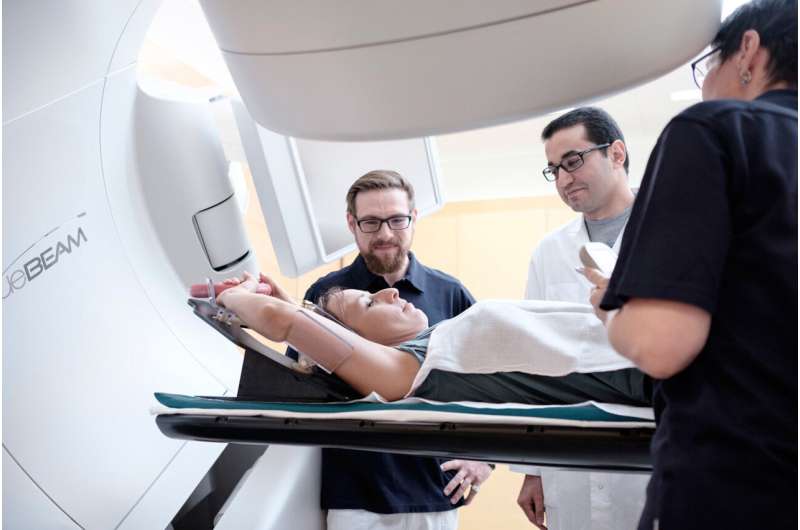Discovery of new genes that influence the success of cancer treatment

Radiotherapy is a cornerstone of today's cancer treatment. About half of all people suffering from cancer with a so-called radiotherapy. For this, patients are usually irradiated daily for several weeks. Although this therapy contributes to healing in many people, others hardly benefit from it at all. The precise causes for these differences are unclear.
Using genetic testing methods, a team led by Prof. Sven Rottenberg from the University of Bern and in close cooperation with the Netherlands Cancer Institute in Amsterdam has now identified genes that play an important role in this process.
"For many cancer patients, their relatives and treating physicians, it is incredibly frustrating when there is no success after a painstaking radiotherapy that takes weeks," said Rottenberg. "We hope that our findings contribute to better predicting the chance of therapy success." The findings can also be used to develop new drugs that could improve the efficacy of radiotherapy. The results of the study have been published in the Cell Reports journal.
Key genes for therapeutic success
The aim of radiation therapy is to damage the DNA of the cancer cells, i.e. their blueprint. This contains mutations that cause uncontrolled growth. The tumor growth is to be stopped by destroying the cancer cells' DNA. But like all cells in our body, cancer cells also have the tools to repair this DNA damage. There are fundamental differences between individual cancer patients' tumors as to which tools are available. These are related to the genes that encrypt the information for these tools. Rottenberg's researchers used genetic screening to investigate the cancer cells' self-repair. In the process, they encountered crucial weaknesses: If certain repair genes are missing in cancer cells, they are unable to repair themselves after irradiation. The researchers were able to prove this in an animal model as well as in human cells. If these genes are missing, there is therefore a good chance that the radiotherapy will be successful. "Our findings show the importance of personalized cancer therapy that takes the genetic predisposition of the people affected into account," said Rottenberg.
More information: Paola Francica et al. Functional Radiogenetic Profiling Implicates ERCC6L2 in Non-homologous End Joining, Cell Reports (2020). DOI: 10.1016/j.celrep.2020.108068


















